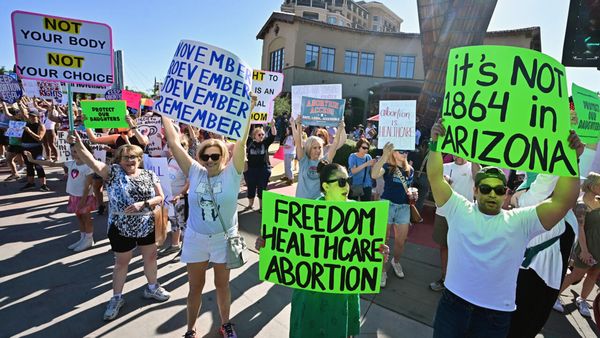
During the election campaign, COVID-19 was a positive issue for Anthony Albanese. He’d successfully framed Scott Morrison as a failure on the pandemic, with plenty of help from Morrison himself. According to Albanese (himself laid low by COVID during the campaign), Labor believed the pandemic wasn’t over and would take it more seriously than Morrison, who seemed anxious to move on and return to normal.
And to be fair, Albanese initially lived up to that belief. In June, he extended COVID funding to the states and territories to the end of the year, at a cost of three-quarters of a billion dollars. For under-siege state health systems, it was a crucial step as influenza returned with a vengeance and COVID surged. Extending the second booster shot to over-30s was also an important step.
Now, however, he’s letting short-term fiscal objectives get in the way of longer-term economic goals. Not on the much-criticised decision to end RAT subsidies, which was perfectly sensible, but on the cessation of the $750 Pandemic Leave Disaster Payment at the end of the financial year.
At a time of surging infections, thousands of people now face either losing incoming or the invidious choice after contracting COVID of continuing to work despite isolation requirements. For people without sick leave — increasingly common in a more precarious employment market — it’s a real blow. It suggests a “pandemic is over” mindset.
And the argument that it was a decision of the former government simply doesn’t wash. So what? They got voted out in May, didn’t they?
The imperative to get the budget deficit down is understandable. Fortunately, the government will benefit from higher company tax revenue from fossil fuel exports (mainly coal, rather than gas, which large companies like Woodside, Santos and Origin can export while paying little in the way of tax). After years of the Coalition getting — to use a memorable Labor phrase — hit in the arse by a rainbow on tax revenue, it’s Labor’s turn. And cuts to the more egregiously wasteful Coalition programs will deliver some savings.
But Treasurer Jim Chalmers and Finance Minister Katy Gallagher are playing their standard post-election “we inherited a mess and we need to take tough decisions” hand for all its worth, conscious not merely that they only have a limited political window to do so, but that the Reserve Bank will take the level of fiscal stimulus into account in its decisions about interest rate hikes. A significantly lower deficit will help convince the RBA to stay its hand at a lower level than otherwise.
But the penny-wise, pound-foolish aspect is that ceasing the disaster payment means more workers will soldier on with COVID, spreading it more rapidly and taking out colleagues, adding to worker shortages, especially in frontline industries where people don’t have the benefit of working from home. This is one spending cut that may add to inflation, not curb it.
“The pandemic isn’t over” can’t merely be a piece of rhetoric. It has fiscal consequences — painful ones for those who want to get the deficit down as quickly as possible. The national cabinet meeting on Monday to reconsider the issue is an opportunity for the government to backflip. With hospitalisations rising and new subvariants circulating, Albanese, Chalmers and Gallagher will have to wear the painful fiscal impacts for a while yet.







